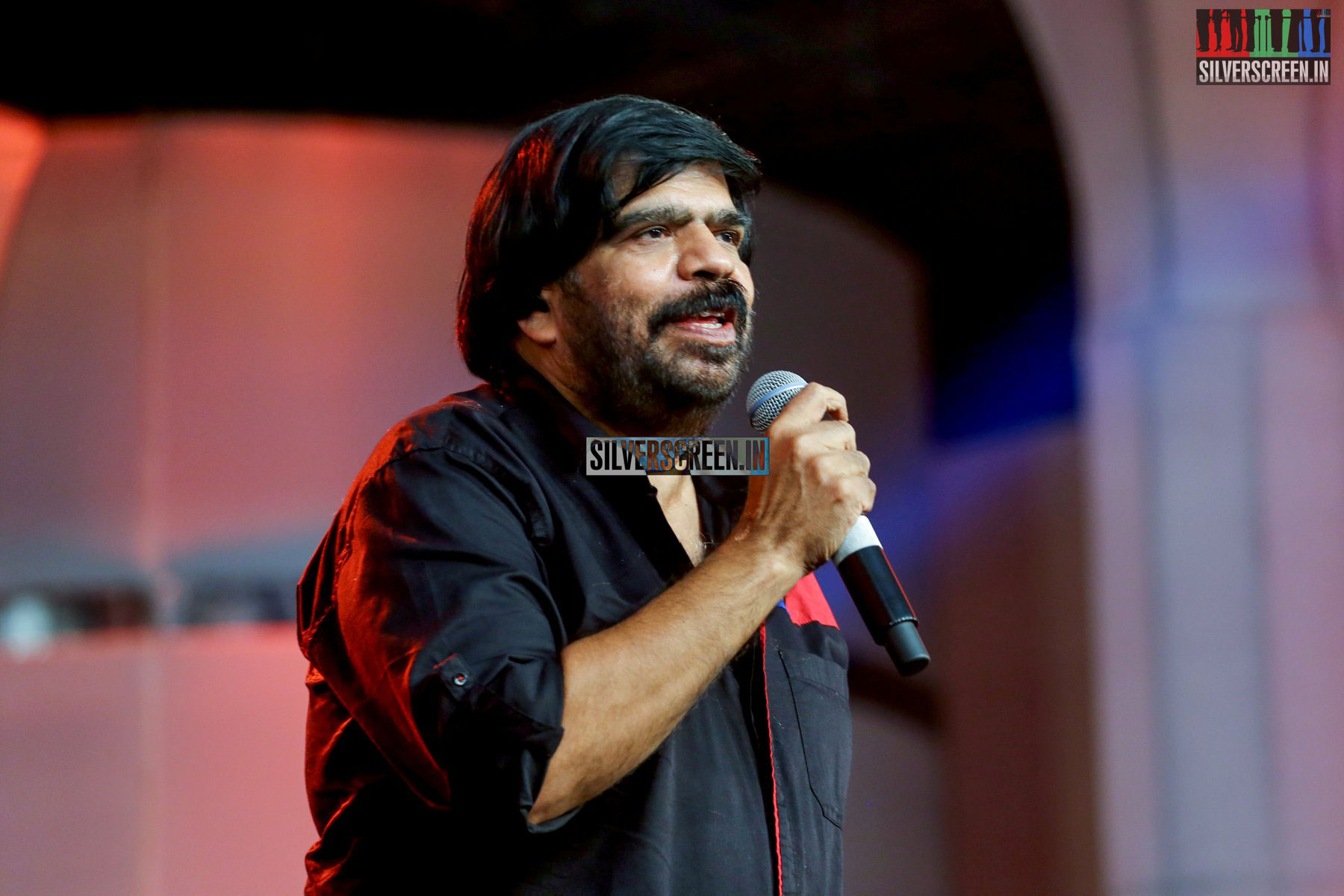India was the country of honour at the Cannes International Film Festival, owing to 75 years of both the festival, as well as the country’s independence.
The festival went on to entail several conferences centered around India, which were aimed at expanding the scope of the Indian film and entertainment industry, both creatively and technologically.
Anurag Thakur, Minister of Information and Broadcasting, Youth and Sports Affairs, led the Indian delegation at the festival, aside from inaugurating the India Pavilion conferences at the festival’s Marché du Film (Film Market) section.
As part of augmenting the Indian film industry, the government’s 2016 National Film Heritage Mission, directed towards restoring thousands of Indian films, also contributed to the same. Films like Satyajit Ray‘s Pratidwandi and Aravindan Govindan’s Thamp were some of the works that were screened at the festival.
On that note, Silverscreen India brings to you, five highlights from the Cannes Film Festival:
Deepika Padukone as an international jury member
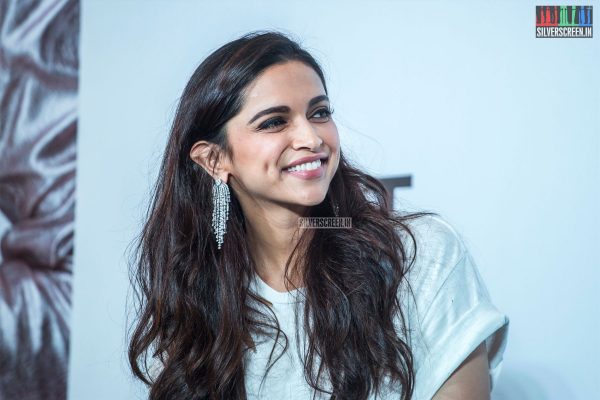
Actor Deepika Padukone served as a member of the international jury at Cannes, almost a decade after Vidya Balan was last honored with the selection. Padukone appeared alongside actors such as Rebecca Hall and Noomi Rapace, and directors Jasmine Trinca, Asghar Farhadi, Ladj Ly, Jeff Nichols, and Joachim Trier. The jury was presided over by French actor Vincent Lindon.
Padukone went on to make red carpet appearances with the jury since the first day, and will be responsible for handing out the biggest prize of the festival, the Palme d’Or.
Indian Delegation
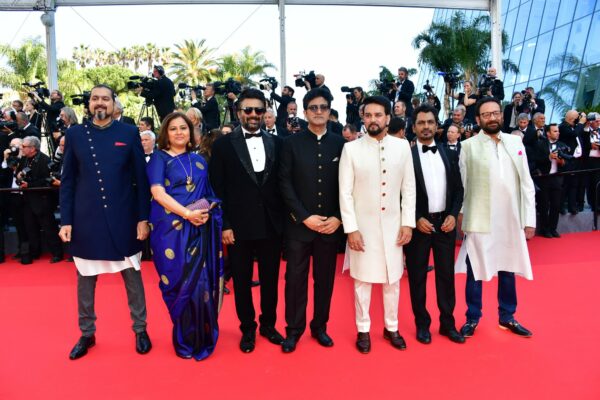
The Indian delegation witnessed a team led by Anurag Thakur that comprised actors R Madhavan, Tamannaah Bhatia, Urvashi Rautela, Pooja Hegde, Nawazuddin Siddiqui, Oscar-winning music composer AR Rahman, folk singer Mame Khan, producer Vani Tripathi, Grammy-winning musician Ricky Kej, and filmmakers Prasoon Joshi and Shekhar Kapur.
Following which, actors Hina Khan, Aditi Rao Hydari, Nargis Fakhri, and Indian content creators Masoom Minawala and Helly Shah also walked the red carpet. Veteran actor Kamal Haasan, and directors Pa Ranjith and R Parthiepan made appearances, as well. The poster of Ranjith’s upcoming venture, Vettuvam, was also released during the course of the festival.
Government incentives and the views on Government’s intervention
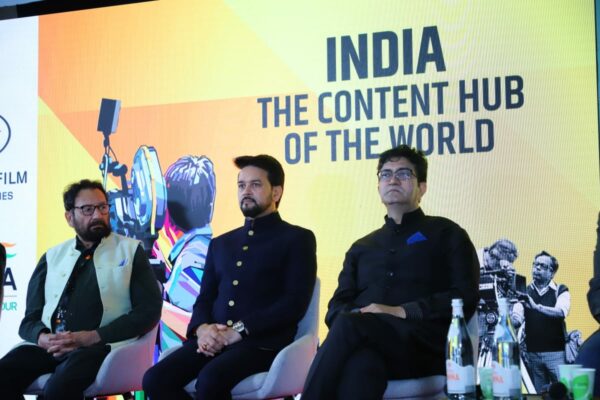
The Ministry of Information and Broadcasting that was present throughout the festival, launched the ‘Film In India’ initiative and the incentives associated with it, for audio-visual co-productions and shooting of foreign films in India, at the India Pavilion.
The projects will have a cash incentive of up to 30% with a cap of USD 260,000. In the case of foreign films that will be shot in India, an additional bonus will be provided, with a cap of USD 65,000 for employing 15% or more Indian manpower.
Anurag Thakur also announced the provision of a ‘film visa’, which would allow the entry of cast and crew of international film projects, to shoot as well as scout for locations for their films in India. The document will further enable them to film at locations that are administered by the Archaeological Survey of India (ASI), as well as those under the Indian Railways.
Subsequently, a panel discussion held on day three, debated the government’s intervention in the film industry. Most Indian filmmakers present, including Kapur and Joshi, agreed that an amalgation of locally-produced content and India’s ‘digital aspirationalism’ could propel the Indian film industry, and cement its position at the global market.
However, Scott Roxborough, the Europe Bureau Chief of The Hollywood Reporter, said that he was “less boisterous” about the potential of Indian content, globally.
Roxborough drew parallels between India and China, and noted that the latter has not been able to translate its domestic domination into a global selling-point.
He noted, “India hasn’t either, despite having a very long history of cinema, a great traditional story-telling. The type of Indian story-telling that is so appealing to the Indian market, has not yet crossed over to the international.”
“And, I am not sure if it will, because it’s just not about having the talent, or the ability to make stories. There’s something else that’s needed. There are other components, and it’s not something that can be easily programmed, especially, not from the government. When the government gets very involved in culture, the culture ends up suffering. We have seen this, recently with Russia. The artists of a country can become tainted by an association. If the government does something that is viewed as controversial, or problematic, internationally,” Roxborough added.
Screenings of Le Musk, Rocketry: The Nambi Effect, and the first-look posters released
AR Rahman’s directorial venture, Le Musk, was screened at the Cannes XR section, on May 19. The film features actors Nora Arnezeder and Guy Burnet in prominent roles. An ode to music and memory, Le Musk deals with revenge. The film is born out of a conversation between the music director and his wife Saira Rahman, both of whom share a love for perfumes and have employed scent as a narrative device.

“Dipping into the abstract trenches of the woman’s psyche, Le Musk constructs a compelling world of music and scent that lay bare sinister and pure motives. As Juliet searches for the four men — the injured, the tattooed, the poacher, and the ‘Musk’ — she must come face to face with the price of her purpose and confront the persistent presence of the past,” reads the film’s official synopsis.
As the film adopts the route of VR (Virtual Reality) a separate section was set up at the venue, wherein, viewers would put on VR headsets, and were seated in revolving pods aimed at enhancing their immersive experience.
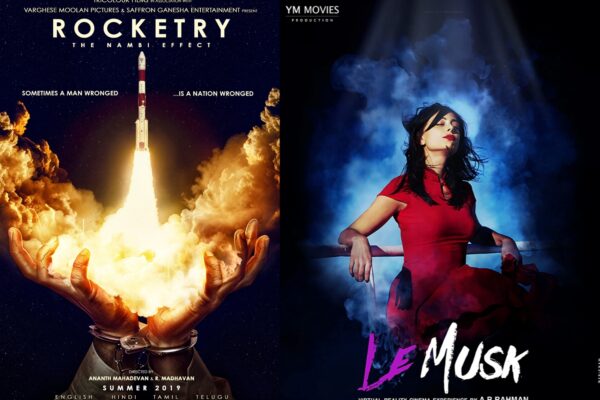
Aside from Le Musk, Madhavan’s Rocketry: The Nambi Effect premiered at the festival, on May 20. It received a 10-minute standing ovation post the premiere.
The film is a biographical drama based on the life of former ISRO scientist Nambi Narayanan, who fought for justice, after being accused of espionage. While Madhavan essays the role of Narayanan, Simran plays the role of his wife, Meena.
Rocketry will release in Indian cinemas, on July 2.
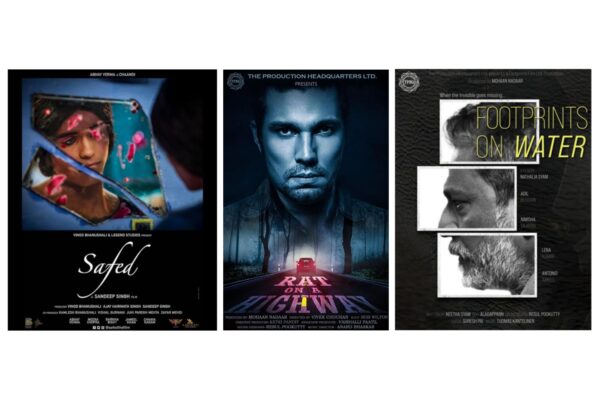
The festival also witnessed the launches and first-looks of films, including, Pa Ranjith’s Vettuvam, Sandeep Singh’s Safed, Adil Hussain‘s Footprints on Water, Randeep Hooda‘s Rat on a Highway, and Hina Khan’s Country of Blind.
Candid Ghoomar Performance and Hina Khan’s Response

In response to a question from Film Companion‘s Anupama Chopra, the actor admitted the existence of an elitist system in the Indian film industry that marginalises television artists.
“There was this opening ceremony which happened at the Indian Pavilion. There was everyone – all the talents, my contemporaries, everyone. Not just from Bollywood, we had singers, and many well-known talents. It’s not that I envy them. I am so proud of them. But at the same time, it is a bit disheartening that why was I not there?” said the actor, who rose to prominence with the television soap Yeh Rishta Kya Kehlata Hai.
Recommended
She added, “I could have been there, probably in the audience at least, cheering for them when they were doing Ghoomar. I loved the video. I felt so proud of my country. But then, I don’t blame the actors, or the celebrities. I think it’s the people on the field who act, who make such things happens, where people from a certain fraternity come together, who make it possible.”
Khan referred to her non-invitation to the inauguration event of the India Pavilion at Cannes, which took place on May 19. The female actors present, also did an impromptu performance at Mame Khan’s insistence, to the song Ghoomar from Padukone’s film Padmaavat.
Khan, who made her debut at Cannes, in 2019, said, “Things have changed with digital premieres and OTT spaces, but its not enough.”
The poster and title of Khan’s upcoming film, Country of Blind, was unveiled at the festival, as well.

